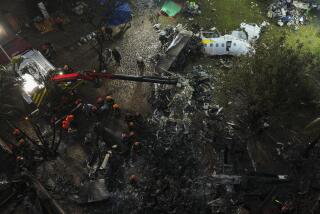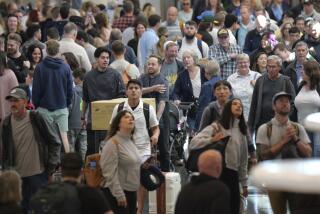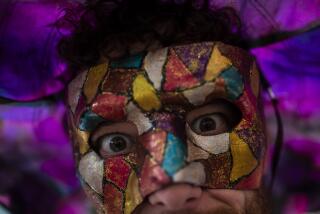160 miles of gridlock: Traffic fuels concern for Brazil’s World Cup
RIO DE JANEIRO — Highways and bus transit ground to a halt in parts of Brazil early Friday, and flights were delayed as Brazilians launched on their long Easter holiday weekend.
Brazil’s transportation system has been the subject of heated debate recently. Some worry that it will buckle under the pressure of thousands of visitors who will descend on the country in June for soccer’s World Cup tournament. The country is struggling to finish transportation facilities and stadiums. Others say its experience hosting major events such as the annual Carnaval or last year’s visit by Pope France make it uniquely prepared to handle huge crowds.
In the largely Roman Catholic country, many families travel over the extended Easter holiday, putting pressure on already crowded highways, airports, and bus terminals.
The state of Sao Paulo, the country’s largest, set a new traffic record Thursday with more than 160 miles of roads frozen in gridlock. Salvador, another World Cup host city, reported jams into Friday. On Thursday, 11% of flights in the country were delayed, according to official data reported by local media.
Bottlenecks have become something of a yearly tradition, meaning some Brazilians prefer to stay put.
Sergio Velazquez, a 42-year old financial analyst, said he scrubbed plans to travel outside of Sao Paulo after checking a traffic website. “For five years now I’ve given up on visiting [beach city] Ubatuba due to traffic. I’m not sure which way things will go during the World Cup, but maybe with everyone home from work and school things will flow better.”
In Rio de Janeiro, people trying to leave by bus faced chaos and long delays. At least two fights broke out early Friday as waiting travelers braved long lines or slept in hallways. Security guards dragged one man out by his arm. Those arriving for a bus to Sao Paulo had to wait 15 hours for one.
Outside, makeshift transportation providers emerged, with men offering seats to Sao Paulo for a premium. After being led through the dark to dirty vans under a freeway bridge, many of the passengers changed their minds.
Since the turn of the century, tens of millions of Brazilians have risen out of poverty, increasing the demand for cars, tourism, hotels, and bus and plane tickets. But infrastructure investments have lagged, economists say, often leading to breakdowns and hampering growth.
“It’s getting worse every year,” Velazquez said.
Most analysts say it is still too hard to tell whether the World Cup will lead to major transportation problems.
Bevins is a special correspondent.
More to Read
Sign up for Essential California
The most important California stories and recommendations in your inbox every morning.
You may occasionally receive promotional content from the Los Angeles Times.










